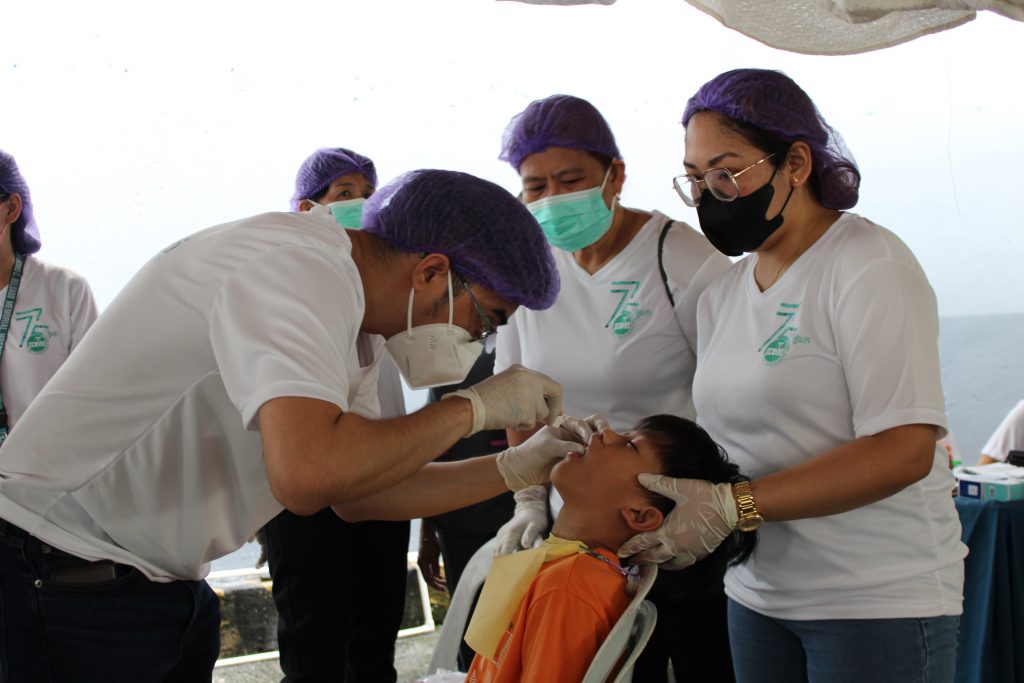Maybe it's me
September 11,2020

Exploring Male Contributing Factors to Infertility
By: Ace C. Odulio
The term infertility has been unfairly synonymous with women who are unable to bear a child. However, it should be noted that men can also be infertile and play a huge factor in the fertility process.
“Infertility is the failure to achieve a pregnancy after 12 or more months of regular unprotected sexual intercourse,” explained Grethel Vasquez, M.D., a fertility expert at Dr. Jesus C. Delgado Memorial Hospital. “And just like during intercourse, it takes two to make the fertilization process a success.”
Studies by the Society of Reproductive Surgeons show that in approximately forty percent of infertility cases, the male partner is either the sole cause or a contributing cause of infertility. With those odds, it should not be unthinkable for the man to wonder… “maybe, it’s me.”
There are two types of male contributing factors to infertility: lifestyle and biological or genetic factors. Lifestyle factors – such as being overweight or underweight, alcohol, smoking, caffeine, illicit drugs, and stress – are ones that can be avoided by the male partner to increase the couple’s chances of conceiving. Meanwhile, there are also biological factors like age, sexual disorders and sperm transport problems that require appropriate treatment.
“Being overweight or underweight affect one’s sperm function negatively,” noted Grethel Vasquez, M.D., a fertility expert at Dr. Jesus C. Delgado Memorial Hospital. “Male obesity, for instance, can cause changes to sex hormones – such as a drop in testosterone – that lead to low sperm counts and reduced sperm motility. Increased fat in the scrotum can also raise testicular temperature, which negatively affects sperm production. Likewise, underweight men may experience hormonal issues as well. Being underweight has been associated with lower testosterone levels and decreased sperm density.”
A scientific way to determine whether someone is over- or underweight is by calculating ones’ body mass index (BMI), an indicator of total body fat. A normal body weight for Asians falls under the 18.5-22.9 BMI range. An adult is considered overweight if one has a BMI of 23-24.9, and obese if it is 25 or higher. On the other hand, adults who have a BMI lower than 18.5 are deemed as underweight. One can easily calculate your BMI using any of the online BMI calculators.
Proper diet and adequate exercise can prevent sperm issues caused by weight problems. But, as Dr. Vasquez cautioned, “excessive exercise has been known to reduce sperm production and quality.”
The Centers for Disease Control and Prevention (CDC) define binge drinking as having five or more drinks on one occasion or within two to three hours, and heavy drinking as having fifteen or more drinks per week. Alcohol can alter male fertility in many ways. Heavy drinking can lower testosterone levels and increase estrogen levels, which reduce sperm production; shrink the testes, which can cause impotence or infertility; cause early ejaculation or decreased ejaculation; and change the shape, size, and motility of healthy sperm.
The good news though is that the effects of alcohol on male fertility are reversible. A 2010 study published on the National Center for Biotechnology Information (NCBI) showed that, once alcohol consumption has ceased, it can take three months for healthy sperm production to return.
Male smokers can suffer lower sperm quality, count and motility, as well as increased numbers of abnormally-shaped sperm. Smoking may also decrease the sperm’s ability to fertilize eggs due to DNA damage in the sperm. Secondhand smoking is likewise bad for female fertility.
“Smoking alternatives like vaping still contain toxic chemicals that can harm the sperm,” commented Dr. Vasquez. “That’s why it’s still best to quit smoking altogether as – just like any lifestyle change such as avoiding alcohol intake – it takes around three months for the change to impact sperm health.”
High doses of caffeine – mostly from energy and soft drinks rather than coffee – may cause sperm DNA damage. Consult with a urologist or fertility expert for more on how caffeine can affect each individual male’s fertility.
Aside from its obvious damaging effects to an individual’s body, illicit drugs such as marijuana and cocaine can also cause male infertility. While its effects can be usually be reversed, it may take around three to twelve months—sometimes longer—for sperm production to return to normal.
Psychological stress can be defined as pressure or uncomfortable emotional experiences that are accompanied by biochemical, physiological, and behavioral changes or responses. Researchers from the University of California discovered that men who experienced two or more stressful life events in a year had a lower percentage of sperm motility and sperm of normal morphology (sperm size and shape) compared to males who did not experience any stressful life event during that time.
Biological or genetic factors can likewise cause infertility. “The quality of the sperm declines as men get older,” Dr. Vasquez confirmed. “That is why younger men – those below 40 years old – have a better chance of fathering a child than those older than 40.”
Older men can also suffer from premature ejaculation (PE), ejaculation that occurs before or soon after penetration, and inhibited or delayed ejaculation, ejaculation that does not happen or one that takes a very long time.
On another note, retrograde ejaculation is common in males with diabetes, multiple sclerosis, Parkinson’s disease or a spinal cord injury. During retrograde ejaculation, semen enters the bladder instead of emerging through the penis during orgasm.
A Safe Haven for Fertility Concerns
“Whether you are struggling with lifestyle or biological factors, it is important that you are comfortable to talk about your fertility concerns,” remarked Dr. Vasquez, who is also the Center Manager of the Delgado Assisted Fertility Center (DAFC). “DAFC serves as a safe haven for couples where they are ensured of comfort and privacy when discussing their challenges with infertility. Our urologists and fertility experts are available to discuss all your inquiries about the dreaded condition, and present you with the appropriate testing and treatment options.”
The Center provides affordable packages for fertility consultations, testing, and treatments such as intrauterine insemination (IUI), a simple and cost-efficient procedure that features inserting a suitable number of healthy sperm directly inside the woman’s uterus around the time of ovulation to ensure the maximum chance for conception.
***
The Delgado Assisted Fertility Center (DAFC) is located at the ground floor of Dr. Jesus C. Delgado Memorial Hospital, located along Kamuning Road, Quezon City.
For your inquiries on assisted fertility, contact us at 8924-4051 to 65 ext. 407.

Delgado Hospital holds its first medical mission since the pandemic
August 5, 2023
As part of the celebration of its 75th Foundation Day Anniversary in the healthcare industry, Dr. Jesus C. Delgado Memorial Hospital held a Medical Mission last August 5, 2023…

Delgado Hospital celebrates its 75th anniversary
August 1, 2023
Last August 1, 2023, the doctors, leaders, and employees of Dr. Jesus C. Delgado Memorial Hospital gathered to celebrate a historic milestone—its 75th year in the health care industry…

Another step toward a safer pregnancy
April 3, 2023
High-risk pregnancies require mothers to take extra caution and see the doctor more often. Doctors specializing in patients with high-risk pregnancy are called perinatologists……

Why IUI?
September 11, 2020
A 2013 study indicated that 10 percent of couples from the Greater Manila Area have infertility issues. Despite these couples’ fervent desire to conceive—…




